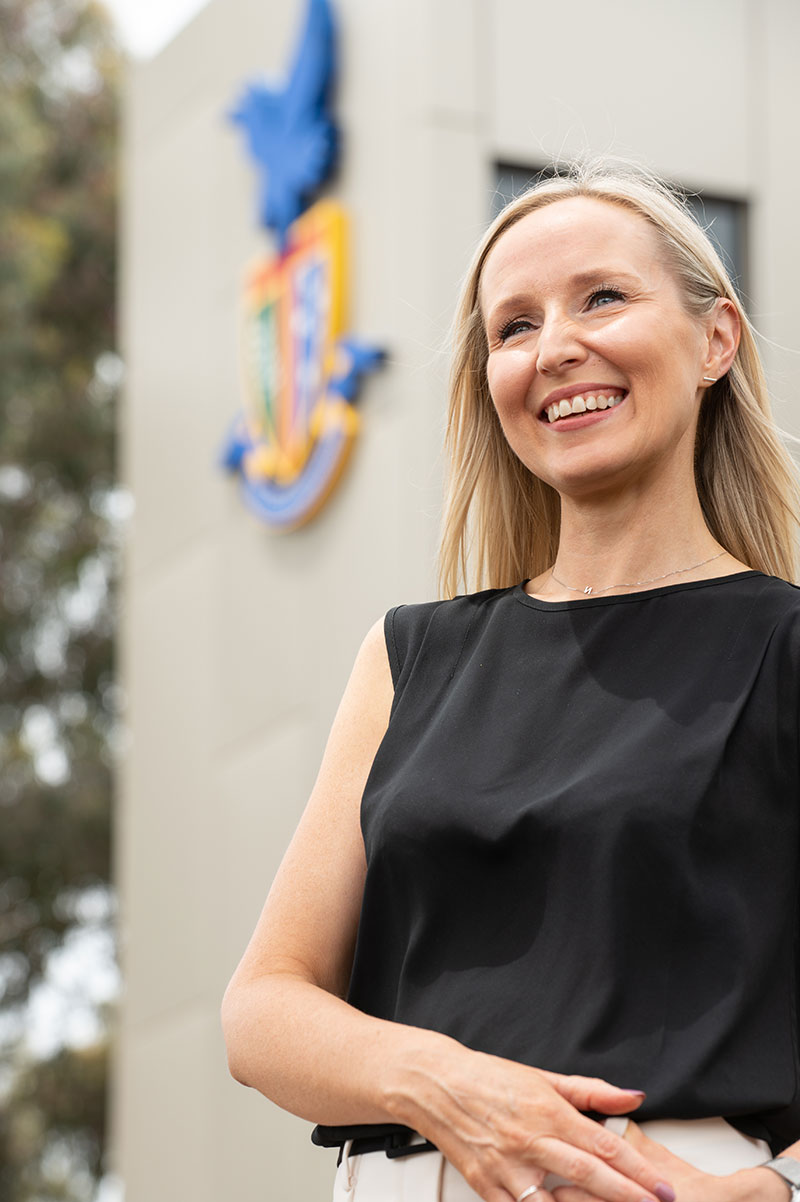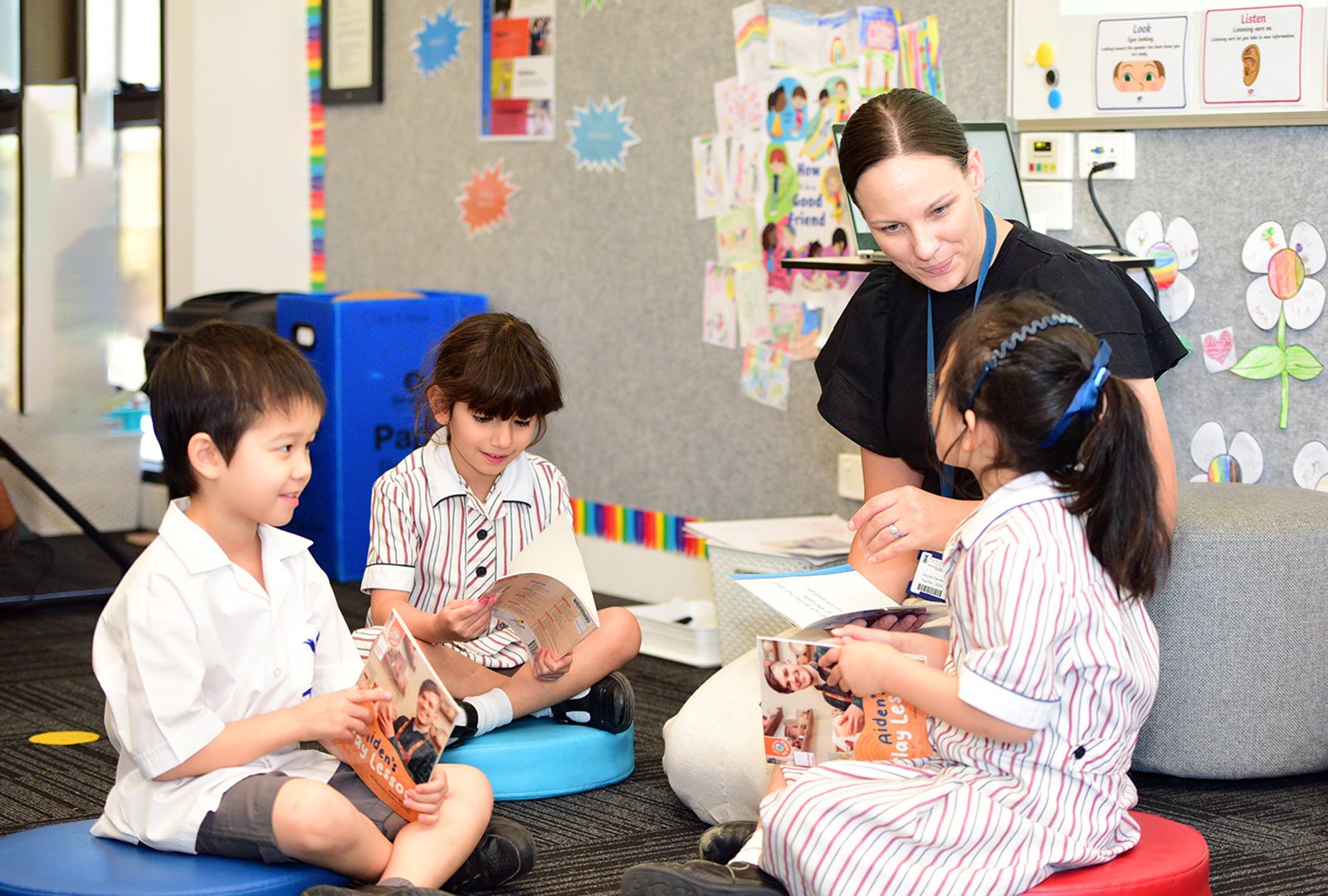
It is fair to say that this term began in such a way that only Melbourne can provide: a brisk 6 degrees at 8am on the gate, wearing my full-length puffer jacket, ending with 28 degrees at pick up time, no jacket required. A 22-degree swing; a perfect Melbourne Spring day!
Over the years in my career, I have enacted Gate Duty in a number of schools across several countries. I can honestly say that it is absolutely the highlight of my day. The energy and enthusiasm with which our students arrive is enlivening and a reminder of the joy in childhood or adolescence of connecting with friends, and the power of curiosity in their learning. Each day brings new challenges and opportunities as they journey towards new milestones. Inevitably, there will be bad days and days when the energy levels dip; however, each day they show up with commitment, ready to engage and to make a difference.
Is this the experience of an adult entering their workplace? If we were to stand at the door of an office block welcoming employees as they arrive to work each day, would we experience the same levels of joy and energy?
For some, for whom their work is also their passion, I would assume so; however, for some who experience the world of work as a transaction, a task to be completed, perhaps less joy and enthusiasm.
The start of a term fills me with excitement; it always has.
Inevitably, there will always be a hint of nerves as I review schedules and ensure all tasks are ticked off; however, the overview of the events, the opportunity to share in new learning experiences, and to share challenges with students has always given me energy. In many ways, teaching is quite a unique career in that each term provides new beginnings and a new chapter; a chance to move on to the next stage of a journey. My husband who, works in an entirely different sector, tells me that the start of a new financial quarter is not quite the same…
In the most recent break, I attended the AHISA biennial conference in Queensland. It was an opportunity to connect with Principals of Independent Schools from across Australia and New Zealand, hear from a range of acclaimed speakers, and take part in a number of workshops and discussions aligned with the overarching theme of the conference What now? What next? Through this lens, the conference considered 3 streams – sustainability, wellbeing and leadership in independent education, both now and into the future.
Overall, the conference was a very enriching experience having the opportunity to engage with speakers such as Micheal McQueen, Dr Judith Locke, Dr Adam Fraser, Dr Catherine Ball and Professor Stan Grant.
Each speaker added to the narrative, What now? What next? and certainly provoked our thinking as educators and leaders, as we consider the current trends and future forecasts for our communities at both a local and global scale.
One reflection that resonated with me on both a personal and professional level is to maintain a focus on the tides and not the waves. Unpacking this analogy, we come to understand that so often in life our attention can be drawn to the waves: short term turbulence which demands our attention. Waves can be loud, visually demanding and can cause short term damage; however, a wave does not create a permanent imprint on the land. A tide, however, is more rhythmic, sometimes less obvious and over time can make permanent changes on the coastline; not necessarily damage, but certainly change.
Utilising this analogy to the life of a school, all too often our attention can be drawn to waves: to the fads or the everyday turbulence, most of which will fade and diminish causing no lasting impact. The tides (in this case the trends) are something to which we should pay close attention, not only education, but within the wider community, locally and globally.
In subsequent discussions with other Principals, I discussed many trends such as the rapid acceleration of AI, the extended possibilities of immersive pedagogy, and generational transition to name but a few.
As our community will be aware, at TKS we dedicate regular time with our staff and our students to consider such trends. We appreciate that our community does not exist within a vacuum.
Whilst the rapidity of change within the global environment is not something that we can control, we appreciate that we can empower our students at TKS to have the capacity to understand the trends and their potential impact and have the skillset to navigate the complexities.
The importance of student agency and student voice could not be more important at this time in our history.
In my Principal Address at our upcoming Presentation Night, I take the opportunity to highlight some of the many examples of student-led initiatives taking place at The Knox School in 2023. These initiatives, varied in nature, demonstrate the value our students place on community, togetherness and leaving a legacy far greater than oneself. In essence, to create a lasting tide and not just a wave.
In working alongside our students as they develop such initiatives, we get a window into their world and an insight into our future.
The well-known aphorism, a rising tide lifts all boats, is a term often used in organisations to outline that an improved context (cultural and academic) will benefit all participants, and indeed this is often the case. However, Rahul Ghandi famously highlighted, “A rising tide doesn’t raise people who don’t have a boat.” Indeed, in the complex world in which we live today, we must ensure that our students not only have access to the metaphorical boat but rather have the skills to build one themselves. It is our duty to ensure they have the basic infrastructure to allow them to rise with the tide and support them to navigate the inevitable waves.
So, as we journey through the final term of 2023, we will maintain our focus on the tides and trends, supporting our students to navigate the complexities and to make positive and lasting impact. We will, of course, acknowledge, observe, and take note of the waves in the knowledge that they warrant our attention, but knowing that they will diminish in time and recede making no lasting impact.
Nikki Kirkup
Principal and Chief Executive
